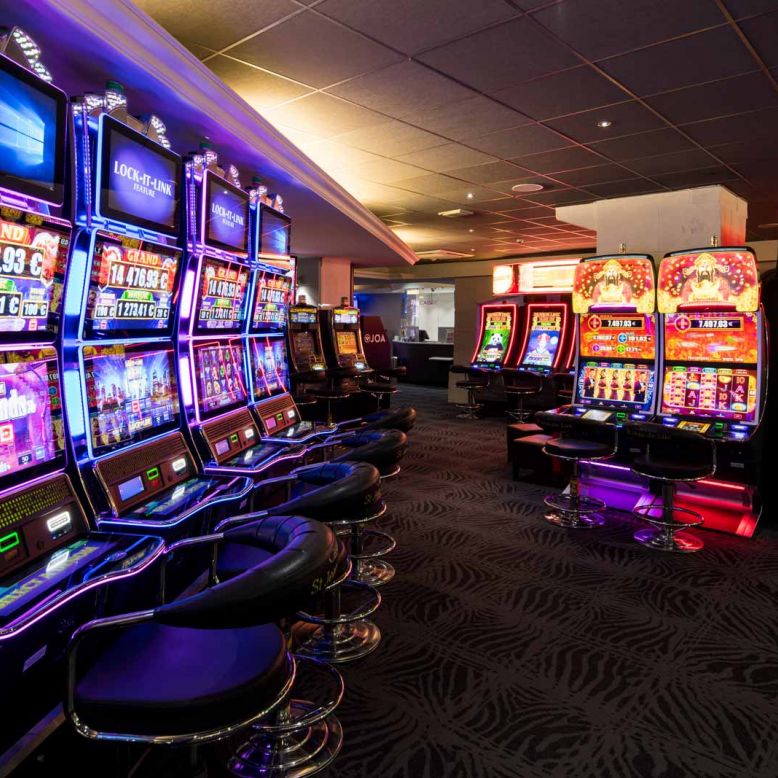
Casino entertainment have long been an integral part of human culture, delivering not just entertainment but a fascinating reflection of our dreams, dreams, and concerns. From the spinning reels of a slot machine to the tactical play of poker, these games embody a spectrum of human feelings and incidents. At their core, casino games are not just a chance to make profits; they are a snapshot of life itself, where risk and reward converge and luck can change in an eye blink.
As players assemble around tables or sit in front of glowing machines, they engage in a tradition that transcends mere gambling. These games mirror our instinctive desires for social interaction, adventure, and the quest for chance. They also disclose deeper truths about human psychology, such as our relationship with fate and the thrill of uncertainty. In exploring casino games, we discover not only the mechanics of play but also the complex weave of the human journey, showcasing our interconnected narratives of aspiration and reality.
The Psychology of Gambling
Gambling is intrinsically connected in human psychology, tapping into various emotions and wants. The excitement of risk-taking is a core aspect that draws players in, whether the excitement of spinning a roulette or the anticipation of drawing a winning card in poker. This adrenaline is frequently likened to other forms of thrill, as the unpredictability of outcomes elicits a unique psychological response. Gamblers often become captivated by the chance of striking it rich, leading to an almost magnetic draw toward casino games.
Additionally, a crucial component of the psychology behind gambling is the concept of optimism and ambition. Participants often nourish dreams of financial freedom and the opulent lifestyle that can follow winning. This hope fuels their ongoing participation in casino games, as it provides a sense of purpose and the conviction that a transformative win could be just one wager away. The story of beating the odds and finding success resonates with many, reinforcing their commitment to play and involve themselves with these games.
Lastly, social dynamics play a crucial role in gambling psychology. Casino environments are designed to foster social interaction, where gamblers gather to share the journey of wins and losses. This shared aspect not only amplifies enjoyment but also affects behavior, as individuals often imitate the actions of others around them. The social validation found in mutual thrill can enhance the emotional experience, making casino games a mirror of not just personal desires but also shared involvement within the gaming community.
## The Dual Nature of Risk and Reward
Gambling games embody the subtle balance between danger and gain that resonates profoundly with human psychology. The thrill of placing a wager is often accompanied by a jolt of energy, as players are confronted with the chance of a huge payout, yet conscious of the possibility to lose. This twofold experience reflects a fundamental aspect of life: the decisions we face often come with built-in risks, and the quest for benefit can compel us to make risky moves we might not typically consider. In this way, gambling activities mirror real-world decisions, enticing players to gamble not just their funds, but also their hopes.
The allure of grand jackpots and winnings fuels a feeling of positivity, inspiring players to imagine a better future that could arise from a lucky spin of the wheel or turn of a card. non GamStop This hope can drive individuals to engage in more daring actions, urging them to extend their limits in search of economic benefit. However, just as in life, the outcomes of these decisions can lead to both triumph and despair. The stories of both jackpot winners and those who have suffered everything at the tables demonstrate the random nature of luck and its significant effect on our futures.
Ultimately, the experience of engaging with casino games serves as a potent reminder of the nature of humanity. Every round played is filled with the tension of ambiguity, as gamblers weigh the rewards against the risks. This dynamic not only highlights the excitement that comes with betting but also exposes the vulnerabilities that come with the desire for more. As we navigate the challenges of decision-making and results in both the casino and in life, we find that the search for benefit shapes our sense of self and experiences in significant manners.
Culture and Isolation in Gambling Environment
Casino environment is a special blend of communal interaction and individual endeavor, reflecting the tensions of individual experience. Gamblers often gather around tables, experiencing in the excitement of the action, rejoicing in wins, and commiserating over losses. This communal aspect is crucial, as it establishes a sense of belonging and camaraderie among diverse groups of individuals. Regular attendees to casinos may form friendships and develop routines, turning the casino into a alternative home where they feel linked to a larger community of players.
However, the attraction of casino activities can also lead to loneliness. As individuals become engrossed in the excitement of gambling, they may withdraw from personal connections or neglect to interact with the world outside the gaming space. For some, the pursuit of a windfall can overshadow real connections, leading to isolation. The situation of being among others yet experiencing solitary is not uncommon, as the focus shifts from collective fun to the private concerns of each individual’s path.
This interaction of society and isolation creates a vivid mosaic that defines casino culture. It highlights the intricacy of social interactions, where happiness and despair coexist. Gambling venues serve as both a refuge for social interaction and a stage for individual struggles, demonstrating how intimately connected our yearning for connection and the personal quest for fortune can be. In navigating this landscape, players confront their own narratives—seeking both the rush of the game and the fellowship of fellow gamblers, ultimately mirroring the broader spectrum of human experience.